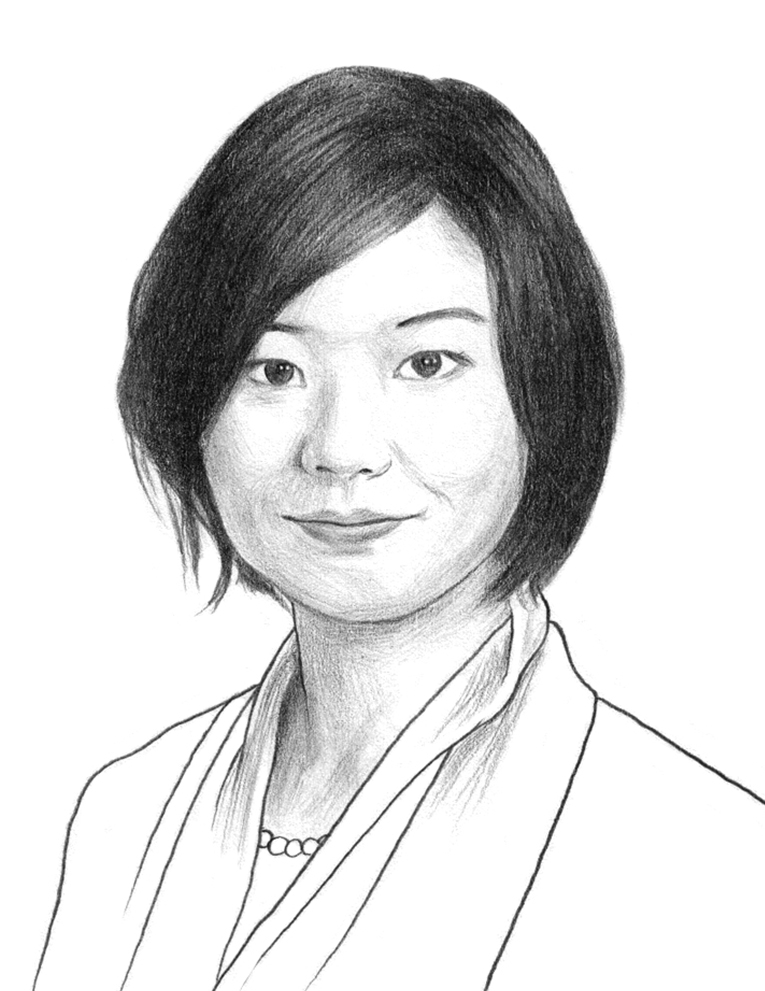Ophthalmology to Sustainable Fashion
Wang brings biomedical engineering knowledge to both.

Illustration by Peter James Field
As a biomedical engineer, Xiaokun Wang has seamlessly shifted from developing implants for the cornea as a fellow with the Johns Hopkins Wilmer Eye Institute to creating a plant-based, plastic-free leather as the co-founder of a new start-up, Uncaged Innovations. It helped that both the cornea implants and the leather alternative contain a protein as the primary biomaterial: The implants are made with collagen type 1, while the leather consists of a plant-based protein.
“My understanding of collagen as a protein, which I gained at Wilmer, has made my choice of proteins as the primary materials for the leather almost like an instinct,” says Wang, adding that other sustainable leather alternatives primarily consist of polysaccharides.
Wang grew up in China and completed a joint Ph.D. biomedical engineering program with Peking University and the Georgia Institute of Technology and Emory University. She became a fellow at Wilmer in 2013 and worked for seven years in Jennifer Elisseeff’s lab using biomaterials to fabricate corneal implants. She also researched whether these implants were having the appropriate biological and immune responses in the eye.
The cornea implants, still in the research stage at Wilmer (where Wang continues to consult), could have a profound impact around the world, she says. “In some countries, donating tissues and organs is not in their culture, so donor shortage is still a problem worldwide.” Moreover, she adds, “Donor corneas are difficult to preserve. With engineered acellular corneas, we have less of such concern.”
In 2020, Wang, who had been in a long-distance marriage with her husband during her Wilmer years and had recently become a new mom, moved to New York. There she met entrepreneur Stephanie Downs, who wanted to start a biomaterials company focusing on leather alternatives. The two launched Uncaged Innovations in 2020.
In the last three years, Wang, chief technology officer for the start-up, has tested hundreds of biomaterial combinations to develop the company’s sustainable leather alternative, which will soon move into full-scale production. This leather is different from other faux leathers, which contain plastics, Wang says.
“Plastic pollution does not break down in the landfill, and it will definitely harm the diversity of the entire ecosystem,” she says. “Our goal is to provide cruelty-free, plastic-free leather to fashion brands that are urgently seeking these alternatives.”
